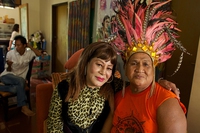
Larantuka Straits, Indonesia will be home to the largest tidal power plant in the world
The largest tidal power plant in the world will be built in the Larantuka Straits. It will serve 100,000 people and help overcome some of the challenges of energy provision in Indonesia.


